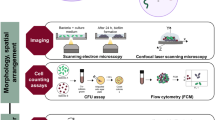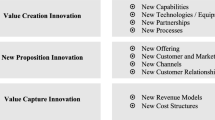Abstract
Integrative systems biology is an emerging field that attempts to integrate computation, applied mathematics, engineering concepts and methods, and biological experimentation in order to model large-scale complex biochemical networks. The field is thus an important contemporary instance of an interdisciplinary approach to solving complex problems. Interdisciplinary science is a recent topic in the philosophy of science. Determining what is philosophically important and distinct about interdisciplinary practices requires detailed accounts of problem-solving practices that attempt to understand how specific practices address the challenges and constraints of interdisciplinary research in different contexts. In this paper we draw from our 5-year empirical ethnographic study of two systems biology labs and their collaborations with experimental biologists to analyze a significant problem-solving approach in ISB, which we call adaptive problem solving. ISB lacks much of the methodological and theoretical resources usually found in disciplines in the natural sciences, such as methodological frameworks that prescribe reliable model-building processes. Researchers in our labs compensate for the lack of these and for the complexity of their problems by using a range of heuristics and experimenting with multiple methods and concepts from the background fields available to them. Using these resources researchers search out good techniques and practices for transforming intractable problems into potentially solvable ones. The relative freedom lab directors grant their researchers to explore methodological options and find good practices that suit their problems is not only a response to the complex interdisciplinary nature of the specific problem, but also provides the field itself with an opportunity to discover more general methodological approaches and develop theories of biological systems. Such developments in turn can help to establish the field as an identifiably distinct and successful approach to understanding biological systems.
Similar content being viewed by others
Notes
As O’Malley and Dupré point out however there is not a well-developed concept of “system” that all groups and sub-groups share (2005). Further many systems biologists are rather ambivalent towards pursuing a general theory of biological systems and acknowledge that a sufficient class of well-validated and robust models does not yet exist. They describe the current shared commitment of systems biologists as a commitment towards an approach that “foregrounds mathematical modeling in order to transcend piecemeal analysis.” (1273)
This research was funded by the US National Science Foundation.
References
Andersen, H. (2010). Joint acceptance and scientific change: a case study. Episteme, 7, 248–265.
Andersen, H. (2013). The second essential tension: on tradition and innovation in interdisciplinary research. Topoi, 32(1), 3–8.
Andersen, H., & Wagenknecht, S. (2013). Epistemic dependence in interdisciplinary groups. Synthese, 190(11), 1881–1898.
Brigandt, I. (2010). Beyond reduction and pluralism: toward an epistemology of explanatory integration in biology. Erkenntnis, 73(3), 295–311.
Brigandt, I., & Love, A. C. (2012). Conceptualizing evolutionary novelty: moving beyond definitional debates. Journal of Experimental Zoology. Part B, Molecular and Developmental Evolution, 318B, 417–427.
Bruggeman, F. J., & Westerhoff, H. V. (2007). The nature of systems biology. Trends in Microbiology, 15(1), 45–50.
Chandrasekharan, S., & Nersessian, N. J. (2015). Building cognition: the construction of external representations for discovery. Cognitive Science, 39, 1727–1763.
Darden, L., & Maull, N. (1977). Interfield theories. Philosophy of Science, 43–64.
Grüne-Yanoff, T. (2011). Models as products of interdisciplinary exchange: evidence from evolutionary game theory. Studies in History and Philosophy of Science, 42, 386–397.
Krohs, U., & Callebaut, W. (2007). Data without models merging with models without data. In F. C. Boogerd, F. J. Bruggeman, J.-H. S. Hofmeyer, & H. V. Westerhoff (Eds.), Systems biology: Philosophical foundations (pp. 181–213). Amsterdam: Elsevier.
Leonelli, S. (2013). Integrating data to acquire new knowledge: three modes of integration in plant science. Studies in History and Philosophy of Science Part C: Studies in History and Philosophy of Biological and Biomedical Sciences, 44(4), 503–514.
Love, A. C., & Lugar, G. L. (2013). Dimensions of integration in interdisciplinary explanations of the origin of evolutionary novelty. Studies in History and Philosophy of Science Part C: Studies in History and Philosophy of Biological and Biomedical Sciences, 44(4, Part A), 537–550.
MacLeod, M., & Nersessian, N. J. (2013a). Building simulations from the ground-up: modeling and theory in systems biology. Philosophy of Science, 80(4), 533–556.
MacLeod, M., & Nersessian, N. J. (2013b). Coupling simulation and experiment: the bimodal strategy in integrative systems biology. Studies in History and Philosophy of Biological and Biomedical Sciences, 44, 572–584.
MacLeod, M., & Nersessian, N. J. (2014). Strategies for coordinating experimentation and modeling in integrative systems biology. Journal of Experimental Zoology. Part B, Molecular and Developmental Evolution, 9999, 1–10.
Mäki, U. (2013). Scientific imperialism: difficulties in definition, identification, and assessment. International Studies in the Philosophy of Science, 27(3), 325–339.
March, J. G. (1991). Exploration and exploitation in organizational learning. Organization Science, 2(1), 71–87.
Mitchell, S. D. (2003). Biological complexity and integrative pluralism. Cambridge University Press.
Nersessian, N. J., & Newstetter, W. C. (2014). Interdisciplinarity in engineering. In J. Aditya & B. Olds (Eds.), Cambridge handbook of engineering education research. Cambridge: Cambridge University Press.
Nersessian, N. J., & Patton, C. (2009). Model-based reasoning in interdisciplinary engineering. In A. Meijers (Ed.), Handbook of the Philosophy of Technology and Engineering Sciences (pp. 727–758). Amsterdam: Elsevier.
O’Malley, M. A. (2013). When integration fails: prokaryote phylogeny and the tree of life. Studies in History and Philosophy of Science Part C: Studies in History and Philosophy of Biological and Biomedical Sciences, 44(4), 551–562.
O’Malley, M. A., & Dupré, J. (2005). Fundamental issues in systems biology. BioEssays, 27(12), 1270–1276.
Osbeck, L., & Nersessian, N. J. (2017). Epistemic identities in interdisciplinary science. Perspectives on Science, 25.
Plutynski, A. (2013). Cancer and the goals of integration. Studies in History and Philosophy of Science Part C: Studies in History and Philosophy of Biological and Biomedical Sciences, 44(4), 466–476.
Ross, D. (2005). Economic theory and cognitive science: Microexplanation. Cambridge: MIT Press.
Trewavas, A. (2006). A brief history of systems biology “every object that biology studies is a system of systems.” Francois Jacob (1974). The Plant Cell Online, 18(10), 2420–2430.
Voit, E. O. (2000). Computational analysis of biochemical systems: A practical guide for biochemists and molecular biologists. Cambridge: Cambridge Univ Press.
Voit, E. O. (2013). A first course in systems biology. New York: Garland Science.
Weisberg, M., & Muldoon, R. (2009). Epistemic landscapes and the division of cognitive labor*. Philosophy of Science, 76(2), 225–252.
Westerhoff, H. V., & Kell, D. B. (2007). The methodologies of systems biology. In F. C. Boogerd, F. J. Bruggeman, J.-H. S. Hofmeyr, & H. V. Westerhoff (Eds.), Systems biology: Philosophical foundations (pp. 23–70). Amsterdam: Elsevier.
Westerhoff, H. V., Kolodkin, A., Conradie, R., Wilkinson, S. J., Bruggeman, F. J., Krab, K., & Moné, M. J. (2009). Systems biology towards life in silico: mathematics of the control of living cells. Journal of Mathematical Biology, 58(1), 7–34.
Acknowledgments
We appreciate the support of the US National Science Foundation in conducting this research (DRL097394084). Miles MacLeod’s participation was also supported by a postdoctoral fellowship at the Academy of Finland Centre of Excellence in the Philosophy of the Social Sciences, University of Helsinki. Members of the Centre contributed much advice in earlier developments of this paper. We thank the directors of Lab C and Lab G for welcoming us into the lab and the lab-members of those labs for granting us numerous interviews. We thank the members of our research group for contributing valuable insights, especially Vrishali Subramanhian, Lisa Osbeck, Sanjay Chandrasekharan, and Wendy Newstetter. We also thank the three anonymous reviewers whose comments substantially improved the paper.
Author information
Authors and Affiliations
Corresponding author
Rights and permissions
About this article
Cite this article
MacLeod, M., Nersessian, N.J. Interdisciplinary problem- solving: emerging modes in integrative systems biology. Euro Jnl Phil Sci 6, 401–418 (2016). https://doi.org/10.1007/s13194-016-0157-x
Received:
Accepted:
Published:
Issue Date:
DOI: https://doi.org/10.1007/s13194-016-0157-x




